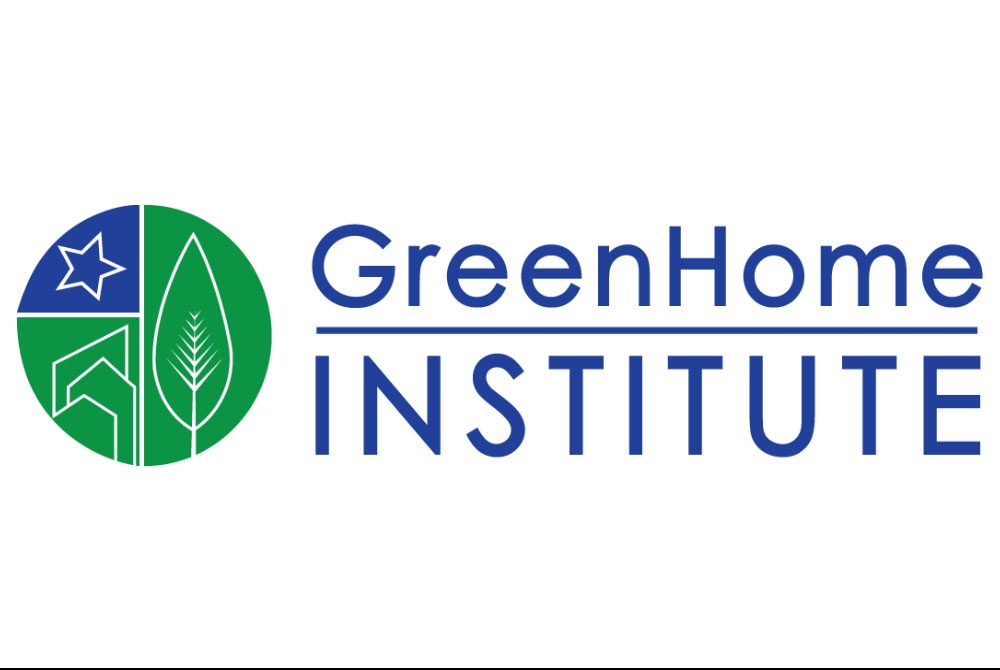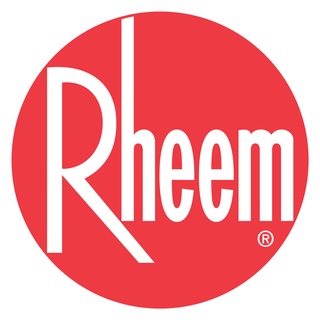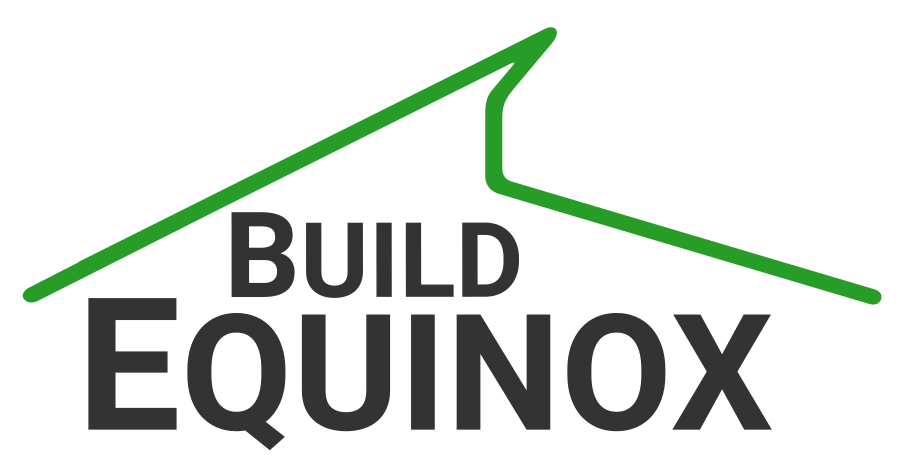The Green Home Institute in GR verifies LEED certification for homes in all price ranges.
Jeremy vanEyk, left, of Cottage Home of Holland, and Brett Little, of the Green Home Institute, see value in building to LEED specifications and home energy audits. Photo by Jim Gebben
The Green Home Institute talks a lot about MPG — but it’s not referring to cars.
The automotive term has been borrowed to exemplify the energy efficiency of dwellings ranging from high-end summer homes on Lake Michigan to single and multi-family structures built or remodeled in inner-city neighborhoods in Grand Rapids and other Midwestern cities.
is a 501(c)3 nonprofit organization with a mission to be a catalyst for “sustainable market transformation” of residential construction through education, third-party verification and community partnerships. Its website states it is the Midwest’s premier LEED Residential, GreenStar and Green Communities Technical Assistance Provider, certifying more than 3,200 new and rehabbed projects, from single family up to an eight-story apartment complex. To date the organization has educated more than 10,000 construction professionals in the U.S. and Canada on residential green building topics and programs.
was started in 2000 in Grand Rapids by its president, Michael Holcomb, along with community leaders including Guy Bazzani of Green Buildings + Design, and Gayle DeBruyn, assistant professor and chief sustainability officer for Kendall College of Art and Design. The organization was awarded grants for green-building education programs delivered throughout Michigan and in 2005 became a Michigan Energy Demonstration Center. In 2008, the Wege Foundation funded its executive director position with a $33,850 seed grant to jumpstart LEED for Homes.
Executive Director Brett Little said the organization, based at the Inner City Christian Federation offices at 920 Cherry St. SE, has only three employees including himself, and a local board of 10 members.
isn’t confined to LEED verifications, although that is a major part of its work.
Most recently, it has been doing home energy and health audits for the owners of existing homes, he said. The Home Energy & Health Assessment costs $300 and results in a “miles per gallon” designation that is nationally recognized.
The assessments are done by a third-party home-energy audit professional. The audit takes from two to four hours. A detailed report to the homeowner identifies ways to improve the home’s energy efficiency. If the homeowner invests in any of the recommended changes, the auditor returns to assess the work for accuracy and quality.
The audit assesses the quality of the insulation, air leakage, duct leakage, the heating and cooling system, water heater, lighting, appliances, doors, windows and “solar gain/shading,” meaning the external exposure to the sun.
The ratings range from zero to 70 MPG, with lower than 20 MPG deemed a “gas guzzler,” while an MPG of 30 to 40 means “your home performs decently,” and higher than 50 is “a high-performing home,” according to Little.
When asked how the Home Energy & Health Assessment differs from energy audits offered by the major utilities in Michigan, Little said many utility company audits are “a quick run-through, handing out some CFL light bulbs, maybe some shower heads, and likely telling the homeowner to add insulation to their attic. We have had to go back and redo audits on some of the utilities’ (audits) because the information just was not useful to make good decisions.”
“Our audit is going to give the homeowner a nationally recognized MPG label for their home that will tell them or their appraiser (and/or real estate agent) how much energy the home is slated to use if it is operated by the average user. We fully assess the home in many areas and give the homeowners a sufficient plan to address low-hanging fruit” — remedies that are inexpensive. discusses the ROI on these projects, too.
“We also assess potential indoor air quality issues such as kitchen and bathroom venting and give the homeowner a radon test kit and follow up to ensure they use it. We also test for water leaks and help homeowners with water conservation strategies,” said Little.
He noted the audits “are entirely third party, as well. We do not sell any products or perform any work.”
Little said a utility company’s auditor may be a contractor who also may be trying to sell a job or product “whether or not it is right for the home. The utility auditor will come back and test their own work, but we come and test other contractors’ work and verify they did the correct job.”
can help plan a home remodeling project to qualify for MI GreenStar certification.
“We can help them with how to do that and educate them along the way, and train the contractor they work with, as well,” said Little.
“Our audits likely cost a little more than the utility audit, but you do get what you pay for. Around here there is this idea that audits are free due to a past governmental program. This has caused two major auditing companies to go out of business now that the money is all gone. We are trying to repair the market and ensure third-party auditors get the pay they deserve for the good work they do,” he added.
The Michigan GreenStar website has a photo and a report on Little’s own home, which was the subject of a retrofit to green standards. Brett and Laura Little started with the goal of achieving LEED Silver certification, but the extensive work that would have required was more than their budget allowed, so they opted for a Bronze level of green retrofit, with plans for more work in the future to reach LEED Silver.
Little said the cost of overseeing the LEED certification process at a new home is about $2,500.
Much of the consulting work does is with homebuilders and home designers and architects. One of its major clients is Cottage Home of Holland, which specializes in high-end summer homes on Lake Michigan. Brian Bosgraaf founded the company in 2000; he and his staff have now designed and built more than 80 custom homes, including 17 LEED-certified homes.
is a sponsor of Homes of Hope Michigan, which will build a LEED home in Grand Rapids that will be given away to the family of a military veteran. also is partnering with MI Solar Works and Eco Works Detroit to help get solar receptors installed on 6,000 homes in Michigan in 2014. The website states that 1,000 of the solar-equipped homes will be in West Michigan, and the solar equipment cost will be subsidized for those homeowners.
“And we’ve recently ‘greened’ our multiple listing services here in West Michigan and Southwest Michigan,” said Little. Real estate listings on the MLS now include verified “green” attributes for homes.






